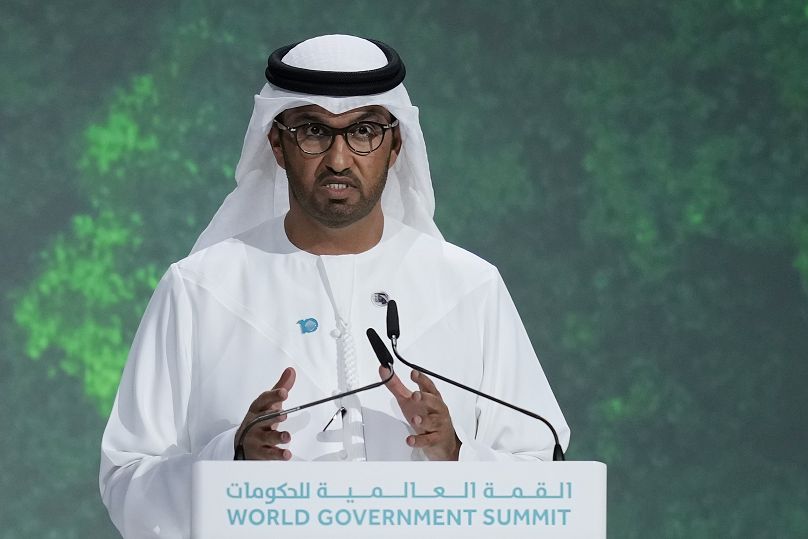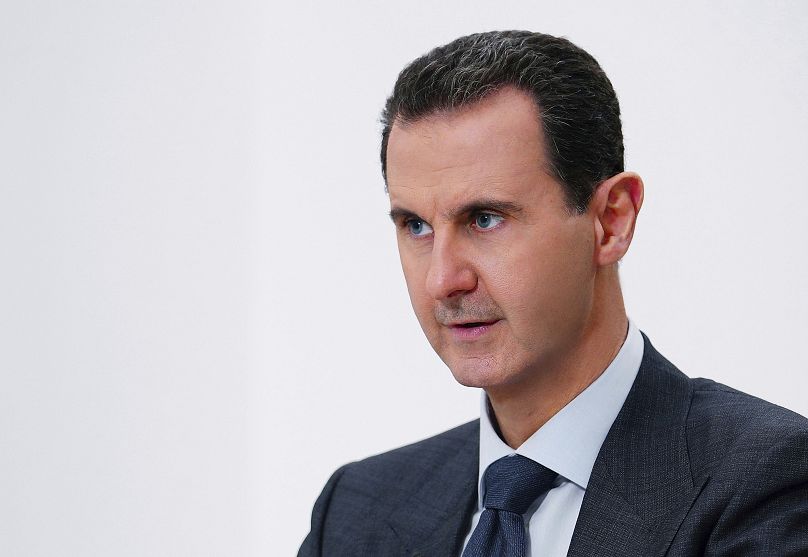COP28 is due to take place in November in Dubai and some decisions around the climate conference have already caused controversy.
It's only a few months until the UN’s annual climate summit takes place in the United Arab Emirates (UAE).
 ADVERTISEMENT
ADVERTISEMENT
 ADVERTISEMENT
ADVERTISEMENT
President of COP28, Sultan Al Jaber has just laid out his long-awaited plan of action at a meeting in Brussels. But his leadership of the event hasn't been without controversy.
As the UN chief Antonio Guterres warns that climate change is now "out of control", many are hoping for a paradigm shift at the summit. Experts say measures to mitigate and adapt to our warming world can't be delayed any longer.
So what do we know so far about COP28? Here’s a look at the biggest stories.
COP28 president lays out plan of action for a 'brutally honest' summit
At a meeting of climate ministers and officials in Brussels this week, Sultan Al Jaber finally shared his plan of action for the UN climate summit.
Guided by the "single north star" of keeping strict Paris Agreement targets of 1.5C of warming within reach, it covers all of the main areas of climate change.
Al Jaber has split these into four pillars: fast-tracking the energy transition, fixing climate finance, focusing on people's lives and livelihoods and full inclusivity.
He called on countries to engage in "brutally honest" negotiations at COP28 in November.
Al Jaber also emphasised that the plan would include the "phase down of fossil fuels" which he said was "inevitable and essential".
This is significant as the COP28 president had been criticised for saying a "phase out of fossil fuel emissions" instead. Some took this to mean that companies could continue extracting fossil fuels as long as carbon emissions were somehow captured.
The phrasing of "phase down" is still likely to disappoint many including more than 80 countries who are hoping to secure a pledge to completely phase out of fossil fuels at COP28.
Al Jaber also said that he wants to ensure that the $100 billion (€89 billion) a year in climate finance promised by rich countries for poor nations is actually delivered. This was supposed to be delivered in 2020 but has yet to materialise.
He also said that fulfilling the agreement to set up a fund for loss and damage that was made at COP27 last year was "absolutely imperative".
Fossil fuel boss picked as president of the climate conference
In January, the UAE confirmed that Sultan Al Jaber had been appointed as the president of COP28. Jaber is the CEO of the Abu Dhabi National Oil Company (ADNOC). the biggest oil producer in the country and the 12th biggest in the world.
His appointment hasn’t come without controversy. Climate leaders and campaigners have voiced a number of concerns calling it a “blatant conflict of interest”.
“You wouldn’t invite arms dealers to lead peace talks. So why let oil executives lead climate talks?” Alice Harrison, fossil fuel campaign leader at Global Witness, said at the time.
Al Jaber says he is approaching COP28 with a “strong sense of responsibility and the highest possible level of ambition.”
Syrian President Assad invited to COP28
The UAE has invited Syrian President Bashar al-Assad to the United Nations climate summit.
A post from the embassy in Damascus said that the President has received an invitation to attend from Sheikh Mohamed bin Zayed Al Nahyan, President of the UAE and ruler of Abu Dhabi.
If he goes, it will be the first global summit he has attended since the start of Syria’s civil war in 2011 which has killed more than 300,000 people and displaced half of the population from their homes.
Assad’s attendance could also cause tensions with countries that have placed sanctions on Syria. The invitation was branded as a “sick joke” by human rights campaigners Amnesty International.
Representatives of COP28 have told the press that they are “committed to an inclusive COP process that produces transformational solutions.”
Adding that, “This can only happen if we have everyone in the room.”
What are the EU’s biggest priorities at COP28?
Back in March, EU nations agreed to push for the phase-out of fossil fuels at the climate conference. The bloc's climate chief Frans Timmermans reiterated this pledge in July, saying that he hopes to push for the phase-out of unabated fossil fuels “well ahead of 2050”.
But, expecting a backlash to fossil fuel-based pledges, the EU is also looking at renewable energy pledges. The second part of Timmermans's proposed pledge includes tripling the annual deployment of new renewable energy between now and 2030.
European Commission President Ursula von der Leyen has also joined the call for countries to set worldwide renewables targets and there has been support from the International Renewable Energy Agency too.
Von der Leyen said these targets could be developed in time for COP28 in November.
Timmermans also outlined the third prong of the pledge which involves doubling the rate at which energy efficiency is improving compared to the last decade.












